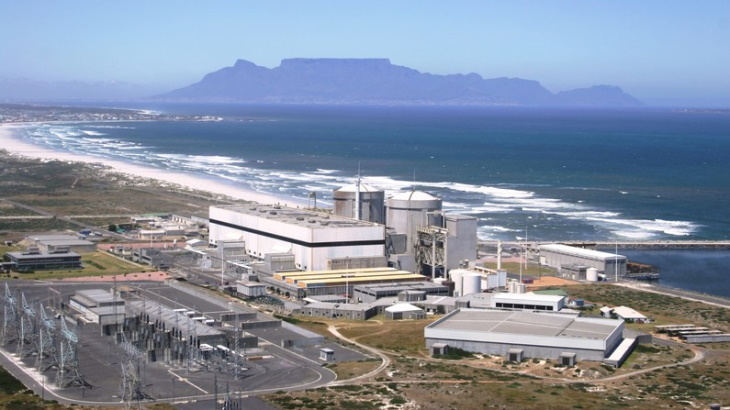Koeberg, with a combined capacity of 1860 MWe (net), is the only operating nuclear power plant on the African content and produces about 5% of South Africa's electricity. Unit 1 entered commercial operation in 1984 and unit 2 in 1985. Eskom submitted its application to extend the operating lives of the two pressurised water reactors by an additional 20 years beyond their initial 40-year operating lives to the National Nuclear Regulator (NNR) in May 2021. In July this year, NNR granted the utility a licence to continue operating unit 1 until 21 July 2044.
The Safety Aspects of Long-Term Operation (SALTO) mission was requested by Eskom, the owner and operator of the Koeberg plant. An IAEA pre-SALTO mission in 2019, followed by a SALTO mission in 2022, were previously conducted to review the long-term safety of the plant.
A SALTO peer review is a comprehensive safety review addressing strategy and key elements for the safe long-term operation (LTO) of nuclear power plants. SALTO missions complement IAEA Operational Safety Review Team (OSART) missions which are designed as a review of programmes and activities essential to operational safety.
During the 3-6 September mission, the SALTO team's review focused on aspects essential to the safe LTO of both units. The mission - conducted by a team comprising two experts from the Czech Republic and Slovenia, and two IAEA staff members - reviewed the plant's response to recommendations and suggestions made during the earlier SALTO mission in 2022.
"The team observed that the plant is addressing the SALTO team's suggestions and recommendations from the 2022 review," said team leader and IAEA Nuclear Safety Officer Bryce Lehman. "Based on its efforts, the plant has made significant improvements in ageing management and resolved most of the issues identified in 2022. The plant is on track to complete the remaining items in a reasonable timeframe."
The team found that the plant had updated the LTO programme ensuring that all long-term operation activities are systematically planned, executed on schedule, and aligned with safety and operational standards. It had also completed the revalidation of environmental qualification for qualified cables ensuring that nuclear facility cables remain capable of safely performing under specific environmental conditions over time, despite aging or wear. In addition, it had completed the revalidation of the Time Limited Ageing Analysis (TLAAs) for concrete structures, including the containment TLAA.
The team noted that the plant needs to continue its work to ensure that the plant programmes supporting LTO are fully implemented for the LTO period. It should also ensure the containment monitoring system is fully refurbished and remains fully functional during the LTO period.
The team provided a draft report to the plant management and NNR at the end of the mission. A final report will be submitted to plant management, NNR and the South African government within three months.
Keith Featherstone, Chief Nuclear Officer, Nuclear Operating Unit, Eskom, said: "For us, this is an integral part of the IAEA's supporting service to ensure safe operation of the Koeberg reactors during the LTO period for the next 20 years. The IAEA SALTO missions, and technical cooperation, helped to improve our continued focus on safe operation.
"Eskom has worked diligently to demonstrate and ensure the safe operation of the Koeberg plant today and into the future and together with the IAEA carried out four review missions and several technical support discussions. We appreciate the IAEA's support and the independent review against international safety standards. We will continue to collaborate in the future as part of our drive to continuously improve."















